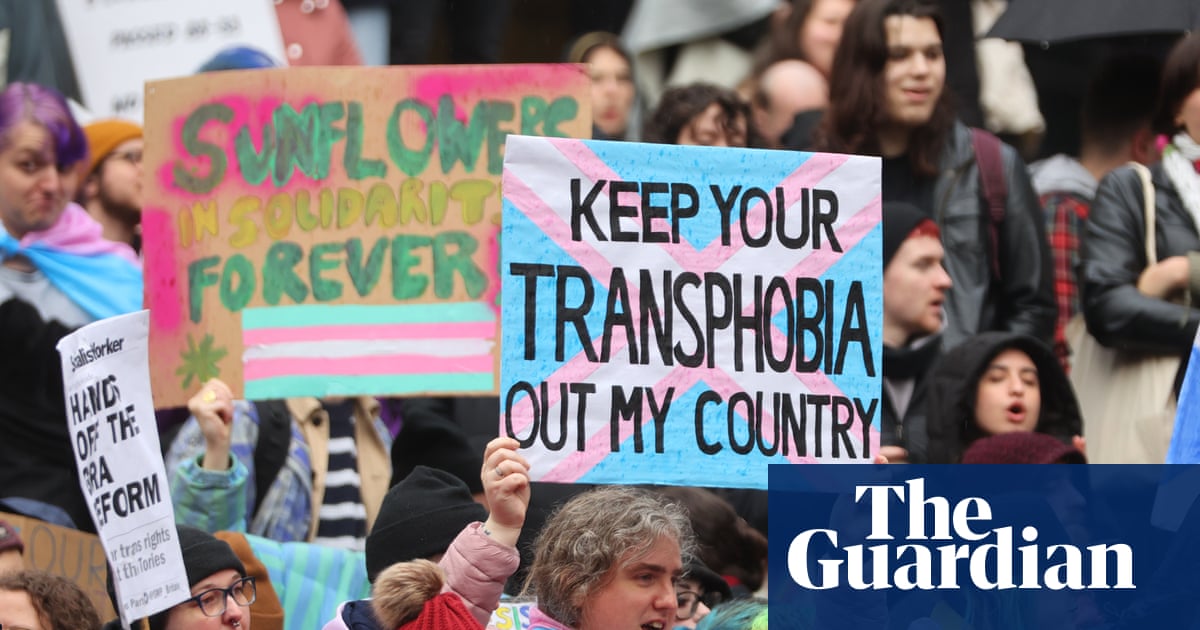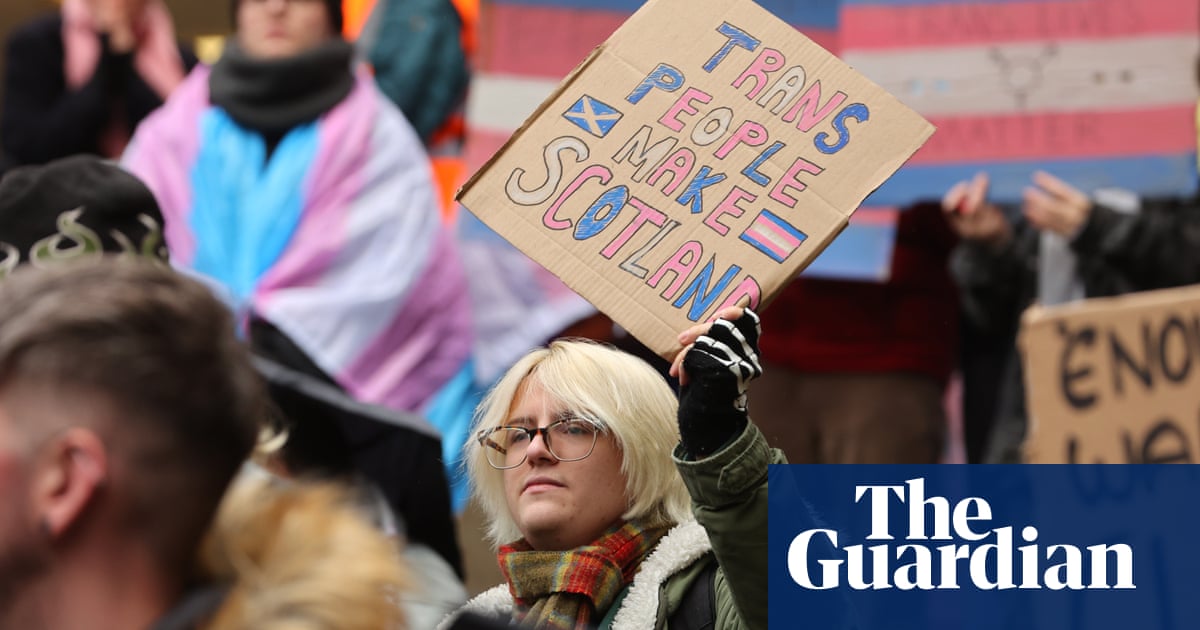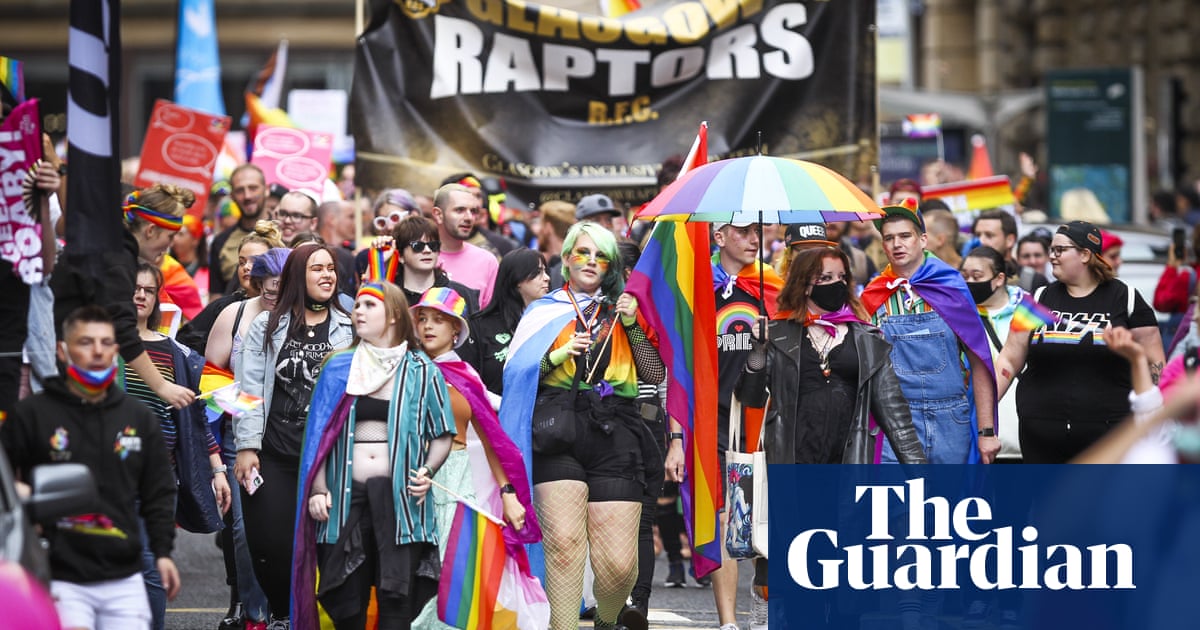
The court of session ruling upholding the UK government’s veto on Scotland’s gender recognition reforms contributed to a “sense of exhaustion” in the trans community, said Jennie Kermode, a writer, film-maker and adviser for Trans Media Watch, based near Glasgow.
“People are still hopeful that this case can proceed further but there is a sense of exhaustion that there is always this waiting, which is the case for all trans people whether it’s gender recognition or waiting lists which are so long even to get psychological help.”
She added: “There was a promise that things would be better in Scotland and now there’s more waiting, but the community still believe the Scottish government is listening and that’s made such a difference.”
Kermode mentioned the non-binary action plan recently published by the SNP government: “Whether or not it affects people directly it does make people feel a lot braver.”
She contrasted this with recent statements from the UK’s women and equalities minister, Kemi Badenoch, who argued that gender-affirming care for children could be considered “a new form of conversion therapy”, and the former UK prime minister Liz Truss, who is proposing draft legislation to prevent transgender women entering single-sex spaces.
Kermode said: “At this point it’s about using trans people to scare people into voting Tory rather than trying to do anything in the time this government has got prior to election. But it does have an effect whenever that kind of statement is made. People become more frightened and the decision today is going to add to that sense of despair.”
Dylan Hamilton, a climate activist, said the ruling was “as much an issue about Scotland’s democracy as it is about the human rights of trans people”.
Gender recognition reform amounted to “a small administrative change that makes our lives slightly easier to lead”, he added. “I think the fact that this cannot even be passed is a dark symbol of how strong the opposition to our right to exist is.”
The practical impact of the ruling is that Hamilton will continue to live day to day “with caution”, and with the knowledge that “I should keep my transness hidden because there are so many out there who are against me”.
He said: “We are seeing almost a direct parallel to how homosexuality was treated in the 80s, so I am confident that things will improve with time. But that doesn’t change that trans people are suffering daily right now and my heart aches for my community.”
In a jointly drafted statement, LGBT Youth Scotland Trans Rights Youth Commission said: “We all want to be seen for who we are, both by the law and those we love; however, this is something that is a struggle for trans people.
“Gender recognition reform seeks to lift this weight off our shoulders, and it is incredibly disheartening and upsetting to hear the court ruling. We hope that with time this will be realised, allowing all of us to be equally respected.”
But while transgender people in Scotland are left in limbo, polling suggests that the Scottish public do not prioritise these changes, preferring Holyrood to focus on cost of living issues.
Many MSPs privately acknowledge the failure to bring the public with them on this subject, compounded by two sexual assault cases involving transgender women, Bryson and Andrew Miller/Amy George, which came to light after the bill’s completion.
Critics of self-identification believe those cases underlined their concerns that the simplification would fundamentally alter who could access women-only services and leave them vulnerable to abuse by predatory male offenders.












